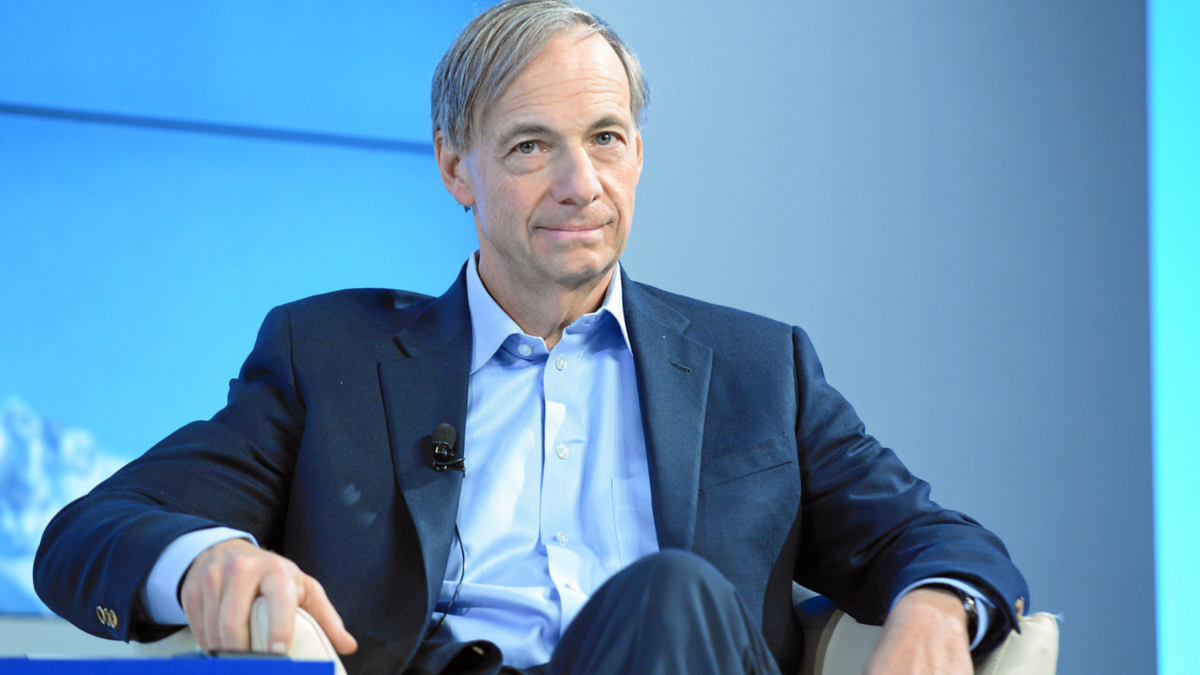Cash no longer trash as Dalio bows out
The times they are a-changing. Bridgewater Associates announced on Tuesday (October 4) that Ray Dalio would step back from day-to-day management of the firm and had transferred his majority ownership to a “broader set of shareholders” while remaining a meaningful owner. Dalio began his succession planning more than a decade ago with the expectation that it would take a scant two years, but has finally found the right people to fill his shoes.
“It’s hard to overstate the importance of this moment for Bridgewater and Ray. Ray founded Bridgewater 47 years ago and, over a decade ago, set out on this journey to transition it,” Nir Bar Dea and Mark Bertolini, co-CEOs, and Mike McGavick, chairman of the operating board of directors, wrote in a note to employees on Tuesday (October 4).
“This process wasn’t easy and we didn’t always agree, but together, we’ve now finished something that very few firms or founders have accomplished, shifting from being a founder-led boutique to being an enduring institution led successfully by the next generation. Looking forward, Ray will continue as a CIO mentor, an operating board member, and will remain an important part of our community.”
Dalio started Bridgewater, the world’s largest hedge fund with $US150 billion under management, in 1987; he started his investment career much earlier, at age 12, when he bought $300 worth of airline shares that later tripled in value when the company merged. Dalio’s talent as a writer of market briefings was enough to land Bridgewater its first major investments from US pension funds, and he’s since developed a reputation as one of the great penmen of investment missives alongside Howard Marks and Warren Buffet.
Some of those missives have occasionally met with a mixed reception: when pages of Principles – which contained lengthy musings about self-improvement, evolution, and the slaughter of wildebeest by hyenas – leaked in 2010, a then-employee of Bridgewater anonymously told The New Yorker “I’m sure our reputation on the Street is that we’re completely insane” (perhaps contravening another piece of advice contained in Principles to “Never say anything about a person you wouldn’t say to him directly. If you do, you’re a slimy weasel.”).
His recent musings on inflation, monetary policy and US-China relations have been more warmly received, and have led to a book titled Principles for Dealing With a Changing World Order.
Dalio and Bridgewater were also some of the few to identify the risks leading up to the 2008 crash and subsequent GFC, advancing some nine per cent when many other firms were deep in the red. He’d made other, similar bets before that were catastrophically wrong; in 1982 he predicted a depression that never came, pushing his firm to the brink of collapse. He later described the experience as “like a blow to my head with a baseball bat” in Principles for Success.
It’s rare for a founder to give up control of their own firm, and perhaps even rarer in the world of investment management, where so much hinges on the perceived investment genius of that founder; perhaps even rarer when performance is strong, as it has been for Bridgewater’s flagship Pure Alpha Strategy, which is up 34.6 per cent this year (other strategies haven’t been quite so hot).
But one development that nobody predicted, and which has been overshadowed by the announcement of Dalio’s departure, was a reversal of his long-held, nigh infamous position that “cash is trash.”
“As John Maynard Keynes is credited with saying: “When the facts change, I change my mind. What do you do sir?”. Along these lines, the facts have changed, and I’ve changed my mind about cash as an asset: I no longer think cash is trash,” Dalio wrote on Twitter just a day before he announced his departure.
“At existing interest rates and with the Fed shrinking the balance sheet, it is now about neutral – neither a very good or very bad deal. In other words, the short-term interest rate is now about right.”
The times they are a-changing indeed.











